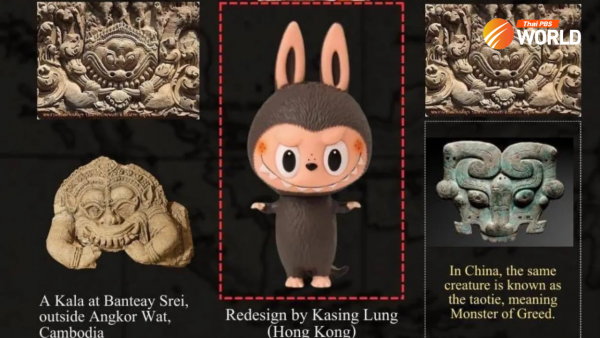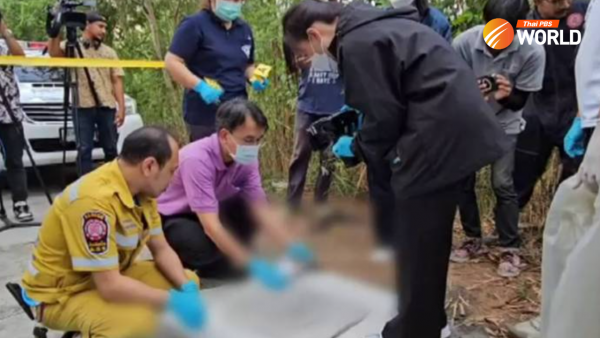Opposition’s strategic changes from last censure

Prime Minister Prayut Chan-o-cha will remain the prime target, but the similarities between the upcoming no-confidence attack and the last one end there. The rest of the strategy and the political backdrop for what is going to happen are new territories that the opposition has to navigate.
In the last censure, the opposition tried to separate the Palang Pracharath Party from its allies, most notably the Bhumjaithai Party. This time, the bloc has been unable to do so for a few reasons. To start with, the new outbreak of COVID-19 in Thailand made it impossible to spare the Public Health Ministry, which Bhumjaithai oversees, and the party’s leader, Anutin Charnvirakul, has declared war on the opposition’s leading figure, Thanathorn Juangroongruangkit, regarding vaccines.
The de facto leader of the Move Forward Party is not even an MP, but his shadow will still loom over this censure, for better or worse. Anutin’s strong response to Thanathorn’s criticism of the vaccine policy is the clearest signal that the two parliamentary alliances _ the government camp on one side and the opposition on the other _ will remain largely intact following this no-confidence debate.
The strategy for the last censure was to inflict enough damage on Palang Pracharath to make its alliance with the rest of the coalition untenable. This time, the plan is to discredit the whole alliance and make the Thai public lose faith in it.
Stakes high for Thailand’s opposition as censure debate targets govt
The opposition bloc’s performance during last year’s no-confidence debate brought allegations of “match-fixing”, with critics claiming certain Cabinet members were intentionally spared scrutiny. Opposition parties on Monday submitted a motion to censure Prime Minister Prayut Chan-o-cha and nine other Cabinet members – mostly for alleged mismanagement.
Success or failure does not depend on the votes, obviously and traditionally, but on how much the public credit the opposition’s information. The bloc, therefore, will have to negotiate a field of booby-traps. Ideological attacks might be good for the rating, but they will not change the minds of partisan viewers and can be time-consuming. In other words, while it will be tempting for the opposition to deliver fierce ideological speeches, they will not change anything ultimately.
Evidence of corruption is the opposition’s best bet. On that aspect, the bloc has hinted it has something up its sleeve. The long list of targeted Cabinet members appears to be a great tactic, because nobody can tell who are going to be “decoys” and who are going to bear the brunt of attacks.
COVID-19 provides an intriguing backdrop. When the last censure took place, the coronavirus was not even a “crisis”. But although it has turned into a pandemic, the opposition will have to be careful what to use and what to avoid. For example, problems in the North and Samut Sakhon can give the opposition big ammunition, and so can the existence of illegal gambling dens, but attacking the government over its vaccine policy can be tricky.
How much the two biggest opposition parties _ Pheu Thai and Move Forward _ will cooperate is a thing to watch. How, for example, Pheu Thai will react when Move Forward zeroes in on the vaccine policy or brings up Article 112 remains to be seen. What is very likely is that Move Forward will throw both issues onto Parliament, which will put the ball on Pheu Thai’s court, rather than the government’s.
Thanathorn asks court to restore his online comments on govt’s COVID vaccine program
Thailand’s Progressive Movement leader Thanathorn Juangroongruangkit attended a hearing at the Criminal Court on Thursday morning to support his petition asking the court to rescind its order to remove, from social media, his comment criticizing the government’s vaccine procurement plan, via Siam Bioscience, which allegedly referred to the monarchy.
COVID-19 numbers at the time of the debate will help one side and negatively affect the other. How the virus is being tackled and how the relief is being carried out are all the Thai people care about. Other issues can be just sideshows, unless the opposition can showcase massive and damning information.
In the last censure, the opposition had the disadvantage of being without star speakers and was criticised for wasting too much time on issues that Thais already knew full well about, albeit with polarized opinions. Trying to single out Prayut and Palang Pracharath was thought to be part of the plan, which created only small ripples.
The game has changed a lot. Back then, Thanathorn was considerably more popular than he is today, not having to worry about threats to his credibility despite the media share controversy. The government, meanwhile, had an incomplete oath recital of the prime minister as arguably the biggest headache. Nobody saw lockdowns and economic hardships coming, and the anti-establishment campaign was probably being conceived and by no means a political factor.
Today, Prayut and Thanathorn will still loom large, but what surrounds them is very different from almost one year ago. The opposition has changed its strategy regarding the targets, but the rest of the plan remains unknown, which is good for the bloc, in addition to more ammunition to attack the government with.
All in all, it will be a strange censure environment, in which what is unsaid is probably as important as what is uttered on the parliamentary floor.
By Tulsathit Taptim






